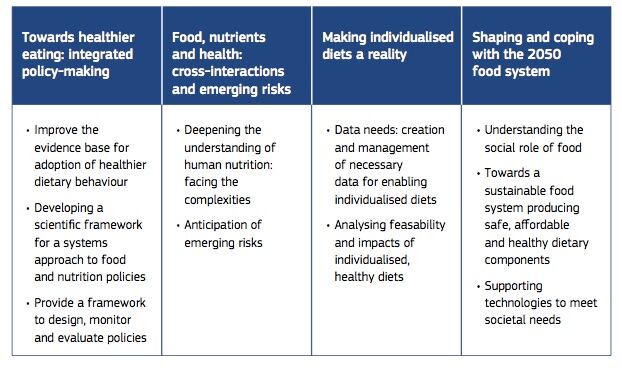The report, titled "Tomorrow’s healthy society – research priorities for food and diets", was prepared by the European Commission’s Joint Research Centre and funded under the Horizon 2020 project.
“In the EU, life expectancy is currently increasing by 2.5 years each decade. However, only 75 % [females] to 80 % [males] of total life expectancy is spent in good health,” said the researchers.
They added that dealing with diet-related ill health was "a social as well as an economic necessity", because of the impact of disease, increasingly strained healthcare systems, an ageing population, and the high economic cost of disease.
The report was based on a study, which involved some 40 experts and stakeholders with a broad range of backgrounds and focused on the provision and consumption of healthy diets before 2050.
The scenario-building approach was aimed at the consumer of the future. Four scenarios were developed to identify and prioritise research needs as well as address the challenges arising from different scenarios.
The four scenarios were: ‘healthy new world’ (1) with strong community spirit and low agricultural commodity price; ‘Heal the world’ (2) with strong community spirit and high agricultural commodity price; ‘Eat to live’ (3) characterized by individualistic society and high agricultural commodity price; ‘Me, myself and I’ (4) with individualistic society and low agricultural commodity price.
“The four exploratory scenarios generated in this study, showing possible but not preferred futures, are characterised by four major differing developments: strong disease-prevention efforts (1), a move towards an environmentally sustainable European food chain (2), significantly increased inequalities (3), and technological progress (4),” explained the report.
Conclusions drawn from the scenarios are outlined in the table below.

“Most of the research priorities identified should be addressed in the coming years to deliver results in the short- to mid-term (before 2030), thus reflecting their urgency,” said the report.
Horizon 2020 is the biggest EU research programme to date with €79m of funding available from 2014 to 2020.
